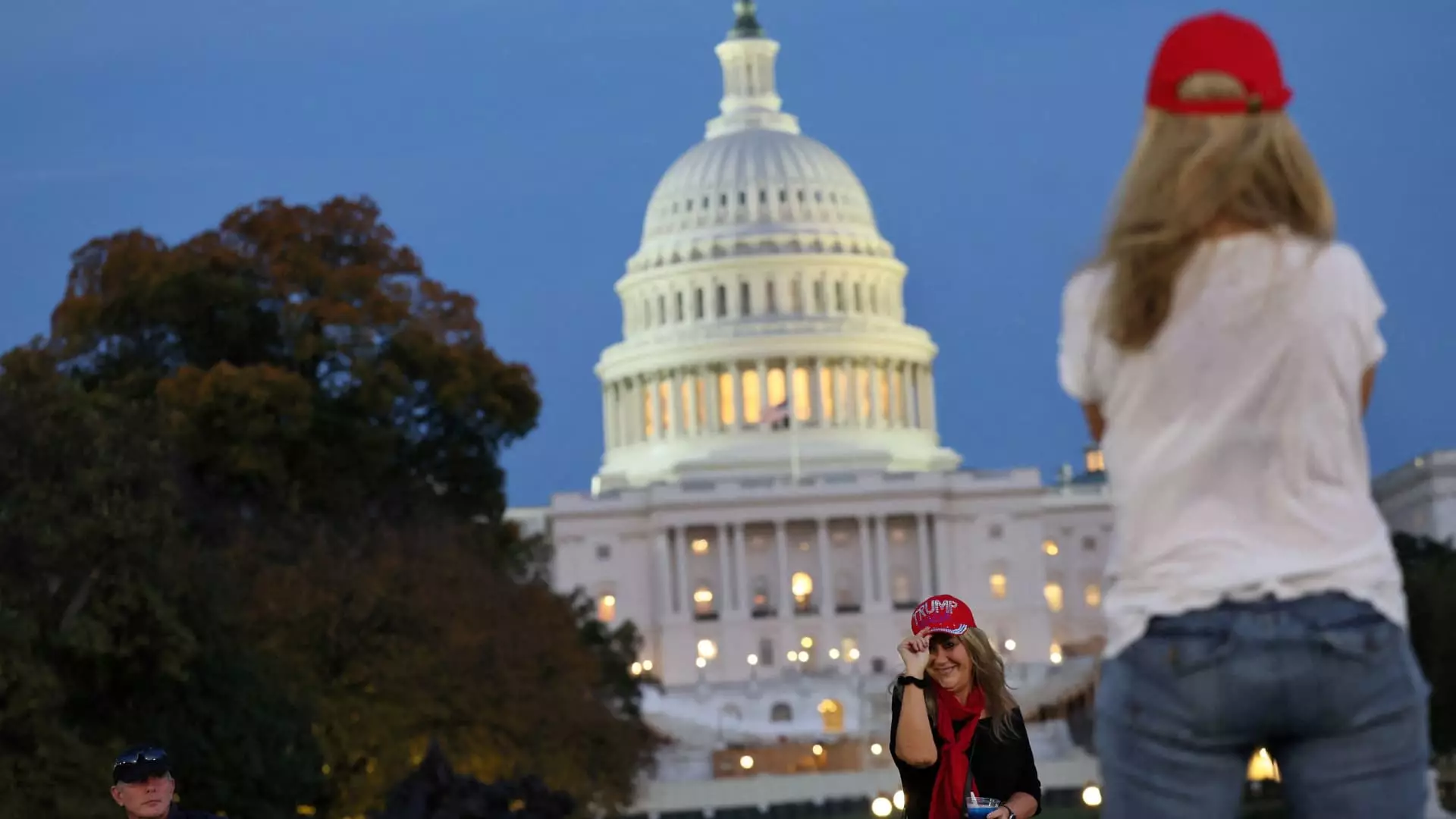The election of Donald Trump as President has left many individual investors pondering the implications for their financial strategies. Recent market reactions, highlighted by a surge in the Dow Jones Industrial Average, reflect a sense of optimism. However, experts emphasize maintaining a cautious, analytical approach in navigating this unpredictable terrain.
Following Trump’s electoral victory, the stock market registered immediate gains, with the Dow surpassing 44,000 points. This spike can be interpreted as an initial response to a perceived stability following an unpredictable election cycle. Nevertheless, experts caution against assuming that the rally is indicative of long-term market sentiment. The stock market inherently thrives on certainty, and the election outcome has introduced a new variable into the economic landscape.
Financial advisors universally recommend that individual investors remain steadfast in their long-term strategies, regardless of immediate market fluctuations. Jude Boudreaux, a certified financial planner, emphasizes the importance of sticking to a well-defined financial plan that aligns with personal goals. He underscores that well-constructed plans are designed to weather fluctuations in the market and that adjustments should be approached with thorough analysis rather than knee-jerk reactions.
Lee Baker, another financial advisor, echoes Boudreaux’s sentiments, reinforcing that while there may be opportunities for alterations in financial strategies depending on Trump’s policy implementations, these changes should not be drastic or impulsive. The essence here is patience; seasoned investors recognize that realigning one’s investment strategy requires a long-term vision and thoughtful consideration.
Trump’s presidency heralds potential shifts in economic policies, particularly concerning regulation. Experts anticipate that Trump’s pro-business approach could invigorate sectors like energy, finance, and industrials. However, this may also introduce associated risks. The notion of increased regulation in some areas juxtaposes with deregulations in others, creating a complex market environment.
Advisors like Marguerita Cheng remind investors that asset allocation should fundamentally reflect individual circumstances—goals, timelines, and risk tolerance should dictate investment choices rather than fleeting political developments. Broad-based index investments can provide a safety net against sector-specific volatility, positioning investors to potentially capitalize on emerging opportunities while mitigating risks.
A significant aspect of Trump’s economic narrative includes tax reform, with implications for both individuals and corporations. The Tax Cuts and Jobs Act of 2017, which introduced favorable tax provisions, has expiration deadlines looming that could alter the economic landscape. Trump’s re-election may pave the way for extending these tax cuts, which financial experts argue could bolster economic growth into the later part of the decade.
However, such predictions come with caveats. David Haas, a financial planner, posits that while potential reforms are appealing, it is imprudent to rely on speculative changes until concrete policies are established. Efforts to eliminate taxes on Social Security benefits, or on tips and overtime pay, remain unsubstantiated and necessitate cautious optimism from investors.
As conversations around tax cuts intensify, the specter of inflation looms larger. While tax reductions may stimulate consumer spending, they could inadvertently lead to inflationary pressures. Increased demand, particularly from consumers with extra cash due to tax breaks, can elevate prices, impacting the Federal Reserve’s interest rate decisions.
The Federal Reserve’s recent rate cuts reflect an effort to counteract rising inflation; however, Trump’s policies could force a reevaluation of this strategy in the coming years. The delicate balance between fostering growth and controlling inflation is a primary consideration for both investors and policymakers alike.
The economic landscape post-Trump’s election embodies both potential growth and heightened uncertainty. Investors must navigate these waters with caution, adhering to long-term plans while remaining alert to emerging policies and market fluctuations. Experts advise staying the course unless analysis supports a shift in strategy. Ultimately, a disciplined, informed approach will better equip individual investors to handle the complexities of an evolving financial horizon.

